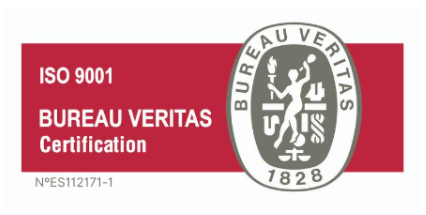A production operator is a worker in charge of performing operational tasks in a manufacturing or production process. The functions of a production operator are to execute orders in compliance with the quality standards established by the company.
In addition, he is usually in charge of performing basic maintenance of the machines and equipment used in the production process, as well as working with other operators and supervisors to ensure process efficiency and optimization of resources.
May also be responsible for cleaning and tidying up the workplace to maintain a safe, clean and orderly environment.
What are the functions of a production operator?
A production operator is a worker who is responsible for performing specific tasks on a production line. Their main duties include handling materials, machinery and equipment for manufacturing, packaging and storing products. They may also supervise the production process and ensure the quality of the products produced.
These are the main ones:
Prepare and adjust used machinery and equipment
This task consists of making sure that the machines are in optimal conditions for their use, performing the necessary cleaning and maintenance. In addition, the parameters of the machines must be adjusted according to the specifications of the product to be produced. They also collaborate in any type of breakdown of the industrial machinery.
Perform inspections and quality controls on products.
This task is important to ensure that the products are in optimal conditions before going to market. Aspects such as weight, size, texture, flavor, among others, must be checked.
Perform assembly, assembly and finishing tasks of products
This task involves a more specialized production process and may require a higher skill level. You must ensure that products are being assembled and assembled correctly and coordinate with other workers for the addition of finishes.
Handling hand and power tools
For cutting, drilling, welding, among others: This task involves the use of either power or hand tools to prepare the products. It is necessary to have technical knowledge and skills to use these tools safely and efficiently.
Feed machines and equipment with the materials needed for production.
This task involves making sure that the machines have the necessary materials to avoid interruptions in the production process. You must have the necessary skills in handling the materials.
Keep the work area clean and tidy.
This task is important to maintain a safe working environment and to avoid oral accidents.accidents. Knowledge of the proper use of tools and cleaning tools and cleaning products.
Communicate any problem or inconvenience to the supervisor or production manager.
This task is essential to maintain proper workflow, escalating problems or issues and coordinating with other sections for successful planning.and coordinating with other sections for successful planning.
Comply with the safety and hygiene standards established by the company.
This task is important to ensure a healthy and safe healthy and safe working environment.uro. It is necessary to comply with safety standards and procedures and to have the necessary skills in the proper use of safety equipment provided by the company.
How to perform an analysis of your factory's operators
In order to perform an analysis of a factory's workers, it is important to it is important to follow a series of steps. First, it is necessary to define the objectives of the analysis.
Do you want to improve production efficiency? Do you want to identify areas for improvement in operator performance? Once the objectives have been defined, the following actions can be taken.
Secondly, it is necessary to define the analysis criteriawhich may be different according to the objectives set. For example, if the aim is to measure production efficiency, indicators such as the number of parts produced per hour, production cycle time, or material waste rate can be considered.
If you wish to identify areas for improvement in the performance of the operators, criteria such as accuracy in the execution of tasks, speed, quality of work, attitude towards work, among others, can be considered.
Thirdly, it is necessary to thirdly, it is necessary to gather the necessary data for the analysis, which can be obtained through different sources, such as production records, performance evaluationsThese can be obtained through different sources, such as production records, performance evaluations, interviews with operators, among others.
Finally, the data obtained analyze the data obtained, identifying the strengths and weaknesses of the operators in relation to the criteria defined above.Finally, the data obtained should be analyzed, identifying the strengths and weaknesses of the operators in relation to the criteria defined above. With this information, improvement strategies can be proposed, such as specific training, improvements in work processes, adjustments in the assignment of tasks, among others.
In conclusion, the functions of a production operator are crucial to are crucial to ensure the smooth running of a company. These functions include the preparation of equipment and tools, regular supervision of production and final product quality, as well as collaboration with other team members to improve the production process and others.
In addition, MES systems can alert operators if a raw material is being used in an unsafe range or if waste is being produced. Therefore, investing in our MES software helps to monitor any anomalies in the production chain when introducing a new agent, such as the Ukrainian clay alternative.

Product Manager at MESbook
Marta Cejudo
Industrial organization engineer with 4 years of experience in real-time factory management as KAM.




